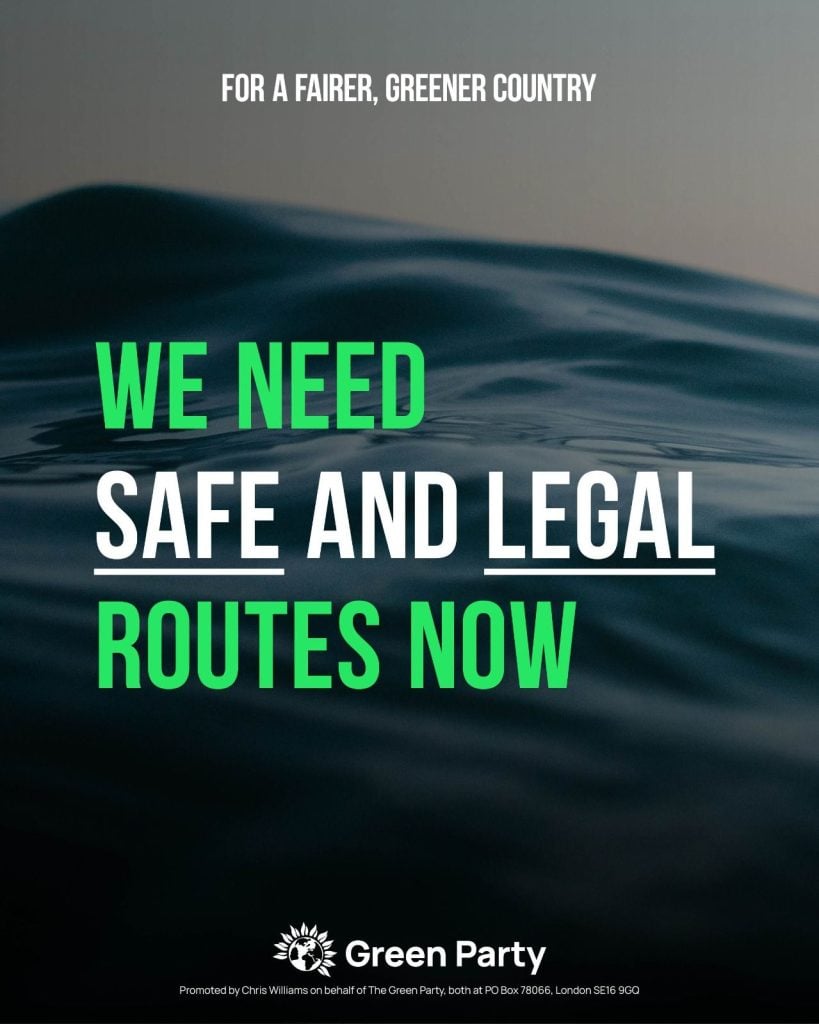menu
Policy Paper
We will not demonise those who take dangerous routes
We will not demonise those who take dangerous routes and will instead focus on ensuring they are not forced to take them in the first place.
If safe routes existed, people would take them. Instead, we have taken away their ability to arrive within permissible routes and thus force them to take more and more dangerous routes. Not only are we causing these risks and ensuring the growth of smuggling networks, but the government went even further in 2023 with the Illegal Migration Act, which states that anybody who has arrived without permission since 20 July 2023 will not have their asylum claims processed and will instead be detained and deported.
In short: the UK helped write the Refugee Convention, has been a signatory since 1951, yet has used visa restrictions and carrier fees to ensure that people seeking asylum do not actually arrive. For the few who use dangerous routes to arrive, the government is now leaving them in limbo by refusing to fulfill our moral and legal obligation to process asylum claims. They, of course, are not being detained or deported (nor should they be), and thus the government’s Act is a failure in every sense of the word.
Meanwhile, individuals from Ukraine and Hong Kong have had visa schemes created for their specific situations. These two visa routes, both popular amongst the British public, contributed to the higher-than-average immigration numbers in 2022. Notably, those who hold either of these visas are arriving in the UK as their visa schemes are meant to work: at the airport, visa in hand. While we do not encourage visa schemes for those seeking safety, as assessing an asylum claim is an international legal obligation rather than the granting of a visa, we use these two examples to illustrate why an Afghan might arrive on a boat while someone from Ukraine almost certainly will not.
The significant majority of those who arrive via a dangerous route are eventually granted refugee status. The top five nationalities who arrived on a small boat in 2023 were Afghan, Iranian, Eritrean, Syrian, and Sudanese, all these countries have a grant percentage of at least 77%. One need only know the basics of the situations in each of these five countries to know that the individuals arriving almost certainly have a valid claim for asylum. They risked the dangerous journey because there are no safe routes for them to apply for, and most likely they had family or other ties to the UK which is why they were so desperate to risk the journey.
Additionally, we must not demonise the 25% of arrivals who are not deemed refugees. While the vast majority of those who arrive via unpermitted routes are seeking asylum, there will be other migrants as well. Similar to those seeking asylum, if there are no routes for people to apply but they have a personal need to arrive in the UK, they will often choose the ‘dangerous option’ over ‘no option’.
For example, the UK is currently ranked 55th out of the 56 countries with the most comprehensive immigration systems for the right to family reunification – an absolutely shameful standing. Understandably, people denied family reunification might pay a smuggler to help them reach their loved ones.Ensuring easier family reunification would be a top priority for our immigration policies by abolishing any minimum income thresholds and expanding who qualifies as a family member.
Similarly, those migrating for economic purposes are doing so because there are labour shortages in the UK and no work visa route for them to fill them. We should bear in mind that economic immigration happens because a destination country has labour shortages. The easiest way to prevent economic migration is to destroy the economy, which is surely nobody’s preference.
In simplest terms, when government work visa policy does not match with labour market needs, there will be irregular economic migration. The trend (albeit in very small numbers in relative terms) of people pretending to be in need of asylum has risen at the same time as labour routes began to close in the 1970s – this is not a coincidence but rather a direct result of strict visa regimes which do not correlate with labour market needs.
We understand and acknowledge the importance of migrant labour to the British economy, and would make it easier for businesses to legally hire the workers they need by abolishing the Immigration Skills Surcharge, bringing visa fees back down to administrative costs, and trusting businesses to hire who they need, amongst other changes. These measures would then simultaneously make asylum claims easier to process, as there would be fewer non-claims to manage (though again, these numbers are much lower than is rhetorically claimed).
Our Refugee and Asylum Policy can be read here.
No matter the reason an individual has undertaken a dangerous and unpermitted route to arrive in the UK, we will not demonise them but instead we must focus on the reasons they found it necessary to take such a risk, and mitigate these reasons in the future.

Policy Papers
Here we have compiled a list of articles and background papers on a range of topics that have helped us inform our policy making and that you may find useful to read and share.

